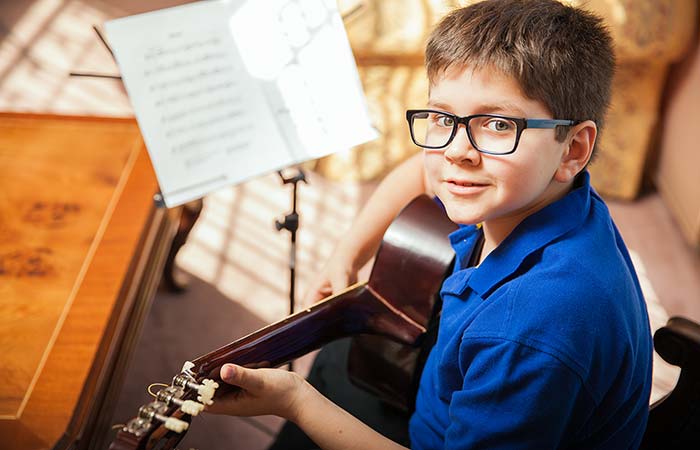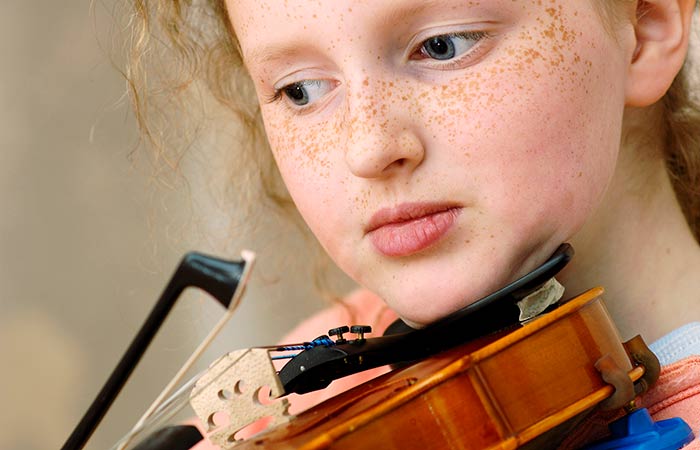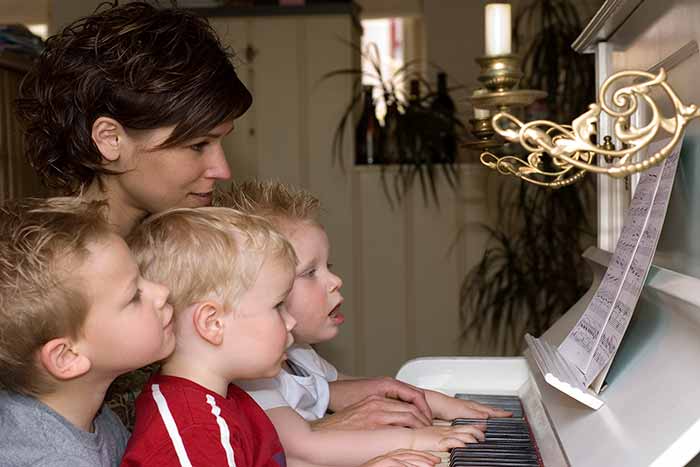Introducing your child to the world of music is one of the most enriching gifts you can give them.
Music has the power to spark creativity, boost confidence, and nurture cognitive development.
However, as a parent, you may wonder when the right time is to enrol your little one in lessons.
To help you make this important decision, we’ve outlined the 5 signs your child is ready to start music lessons, along with helpful tips to guide their journey.

1. A genuine interest in music
One of the most obvious signs is your child’s enthusiasm for music. If they show excitement when listening to songs, try to mimic sounds, or play imaginary instruments, it’s a clear indication that they’re drawn to the world of music.
Young children often show this interest naturally, so pay attention to their spontaneous reactions.
Do they stop to listen when you play music at home? Do they tap rhythms on tables or hum familiar tunes?
Fostering this interest early can create a lifelong passion. A child who enjoys music will find lessons engaging and rewarding, making it much easier to build a solid foundation in their chosen instrument.

2. The ability to focus and follow instructions
Learning music requires concentration and the ability to follow instructions.
Even at a young age, children who can sit still and focus on a task for 15–20 minutes may be ready for music lessons.
For example, if your child can complete puzzles, pay attention during storytime, or follow step-by-step instructions, they’re likely to handle the structure of music lessons.
Music lessons also teach discipline and patience, so children with emerging attention spans can develop these essential life skills further as they practise their instrument.

3. A strong desire to learn
Does your child often express curiosity about musical instruments or ask questions like, “How does this work?” or “Can I try that?”.
A strong desire to learn is a key factor in determining their readiness for music lessons.
Motivated children are more likely to enjoy practising and show steady progress.
This internal drive often results in greater satisfaction as they master their instrument, making the experience enjoyable for both the child and the parent.

4. Well-developed fine motor skills
Playing a musical instrument requires coordination and fine motor skills.
For instance, pressing piano keys, strumming a guitar, or handling a violin bow demands dexterity and hand-eye coordination.
If your child can perform activities such as drawing, writing, building small structures, or using scissors effectively, it’s a sign that their hands and fingers are ready for the demands of an instrument.
Even simple rhythm exercises with percussion instruments can be a great starting point for younger children as they build these skills.

5. Adaptability to routine and practise
Consistency is key when learning an instrument, as regular practise is essential for progress.
If your child thrives on routine and can stick to a schedule, they’re more likely to succeed in music lessons.
Introducing short, daily practise sessions helps children build good habits early on.
For instance, scheduling 10–15 minutes of practise at the same time every day can teach discipline and set them up for long-term success.
A child who can embrace this structure is well-prepared to begin their musical journey.

Additional factors to consider
While these signs are helpful indicators, it’s also important to choose the right instrument for your child.
Some instruments, such as the piano, are easier for younger beginners to explore, while others, like the violin or guitar, may require more physical coordination.
You should also consider your child’s personality and interests.
Are they drawn to the rhythm of drums or the melody of a flute?
Involving your child in the decision-making process can help them feel more invested and excited about their lessons.

The benefits of starting music lessons
Starting music lessons at the right time offers numerous benefits. Learning an instrument can:
- Enhance cognitive development and memory skills
- Boost self-esteem and confidence
- Improve coordination and motor skills
- Encourage creativity and self-expression
- Teach discipline and perseverance
These advantages go beyond music, providing skills that your child will carry with them throughout their life.

Ready to begin?
Recognising the 5 signs your child is ready to start music lessons is the first step towards nurturing their potential.
If your child shows one or more of these signs, now is the perfect time to begin their journey.
At Children’s Music Academy, we specialise in music lessons designed specifically for children.
Our expert instructors create a fun, supportive, and engaging environment where kids can thrive musically.
Whether your child is a budding pianist, guitarist, or drummer, we have the perfect programme to suit their needs.
Located in London, we’re here to help your child discover the joy of music.
Visit Children’s Music Academy to learn more and book your child’s first lesson today!












